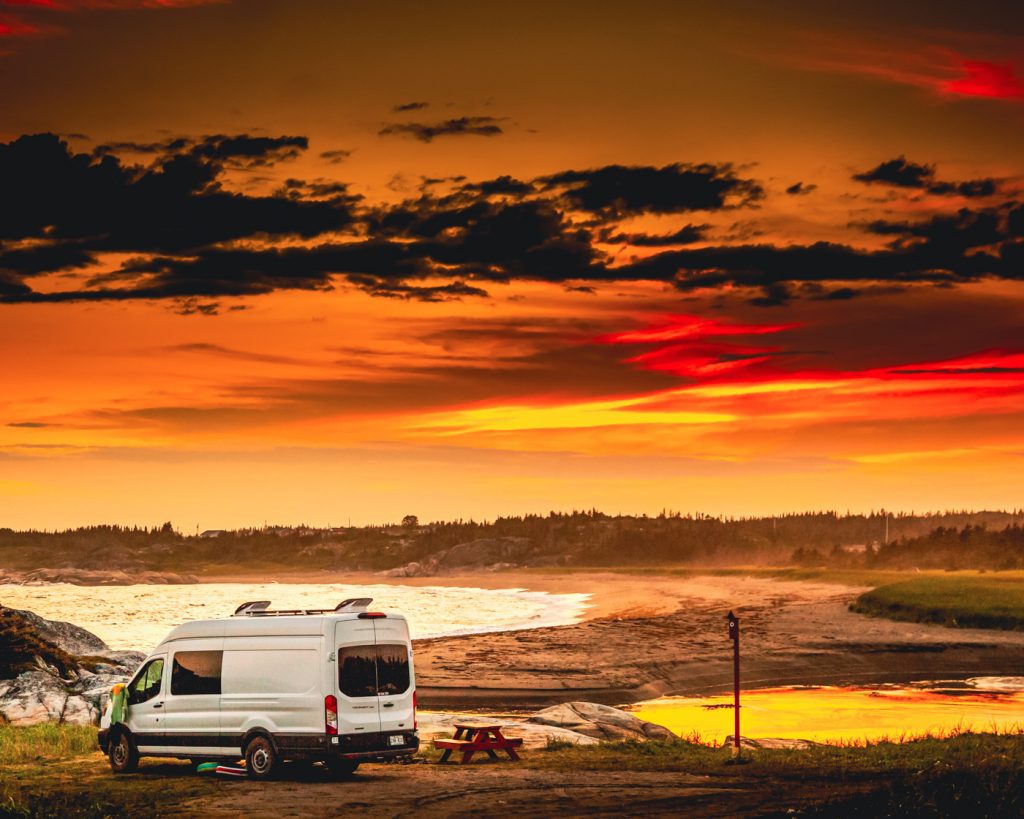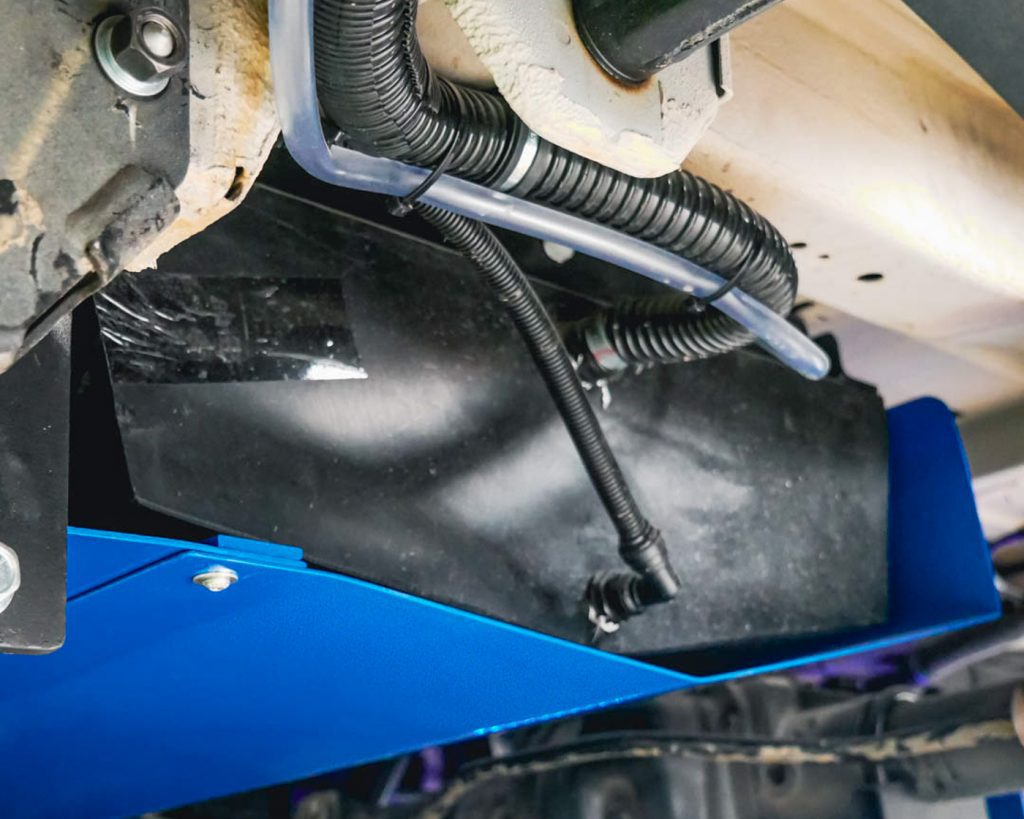I. Introduction
In our rapidly changing world, traditional notions of living are being continually questioned and reimagined. A shift is taking place, moving away from the standard practice of homeownership or renting towards more innovative and flexible options. One such alternative gaining considerable traction is van conversions. This unique lifestyle choice involves transforming ordinary vans into comfortable mobile homes.
This emerging trend prompts an interesting question: Why would you rent or cohabitate in a share house when you can own a tailor-made, fully-equipped van conversion? As it turns out, this isn’t just a fad. It’s a lifestyle revolution offering a compelling blend of freedom, flexibility, and financial savvy.
We are excited to lead the charge, helping more and more people live more freely and get off the rental cycle. We are paving the way for this new wave of nomadic living with its top-tier, personalised solutions that redefine what ‘home’ can mean for many people.
In this post, we’ll delve deeper into this intriguing comparison between the traditional route of shared homes or renting and this rising trend of owning a custom van. We’ll explore the numerous benefits that come with choosing van living. So buckle up and prepare to embark on a journey that might change your perspective on what makes a house truly a home.
II. The Concept of Shared Homes
Share homes, also known as co-living spaces, are housing arrangements where individuals, often unrelated, share a residence. This type of living situation typically involves shared common areas like the kitchen, bathroom, and living room, while private spaces may be limited to bedrooms. Conversely, renting usually involves leasing an entire property from a landlord for a set period.
While sharing a home or renting can have advantages, like lower costs and companionship, they have many drawbacks. Living in a shared house often means sacrificing privacy, one of the most valued aspects of personal space. Your bedroom might be your own, but the rest of the house is communal, leading to potential clashes over cleanliness, noise levels, and usage times for common areas.
Moving in with family might seem like a cost-effective solution, but it, too, carries its own set of challenges. It’s common for tensions to rise due to differences in lifestyle, habits, and boundaries. Moreover, it can sometimes curb your independence and personal growth, as you are constantly in a familiar environment.
Renting solo brings challenges, such as ever-rising rent and utility costs, committing significant earnings to basic living costs, being tied into long-term contracts, and the potential intrusiveness of landlords or property managers. There’s also the uncertainty of rent hikes or the possibility of relocating abruptly if the property gets sold. Furthermore, personalising the space to create a sense of ‘home’ is often limited.
In contrast, owning your living space provides stability, freedom, and privacy that shared homes or rentals can’t match. The average cost of a home in Australia is now well over $400,000. Budgeting for a home deposit whilst paying rent is quickly becoming an impossible task, which is why so many people are beginning to think outside the box and look into alternative living options, such as motorhomes.

III. The Rise of Van Conversions
In the 1970s, the free spirits of the decade began transforming basic cargo vans into mobile homes, seeking a vehicle that could facilitate their desire to explore. This trend continued into the 1980s, with early models often vans with additional seats. As time passed, these conversions became more sophisticated, evolving from rudimentary modifications to meticulously designed luxury vehicles for road trips and camping. By the 1990s, conversion vans, busses and trucks began to graduate from basic dwellings on wheels to fully equipped homes on the road.
A van conversion is a full-sized cargo or panel van sent to third-party companies to outfit with various luxuries for mobile living. These vans differentiate themselves from traditional motorhomes by offering more customizability, higher-quality materials, and greater off-road capabilities, especially with the options for AWD, improved suspension and lift. The lack of a fibreglass body can minimise ongoing maintenance and reduce leaking. Van’s are designed and manufactured for long-term commercial use; they’re built to last. Which is why converting them can offer so many benefits.
Most conversions have a kitchen, bathroom, lounge area and sleeping quarters. They offer features like refrigerators, freezers, microwaves, stoves and ovens to give you all the utilities you would expect from a home. Vans are usually outfitted with high-quality insulation for superior thermal comfort in all seasons. Advances in solar power and batteries allow van owners to harvest their own energy; imagine never having to pay an electricity bill again! And water tanks and the widespread availability of free water from threaded taps across the country allow van owners to fill up their water tanks for free, which can last up to a week at a time.
Choosing a van conversion over a traditional motorhome offers numerous advantages. You get a vehicle that’s easier to drive and park, as even a standard long-wheel-based van can fit into the average parking spot, and you get a home customised to your exact specifications. Furthermore, the smaller size of a van conversion makes it more fuel-efficient and easier to maintain than a larger RV.
IV. Comparing Costs: Renting vs Van Conversions
For many aspiring homeowners, a budget rental or shared house has traditionally been the go-to option to save money for a deposit. However, the rising costs of rent and utilities have rendered this path to homeownership increasingly unfeasible.
The cost of renting can vary greatly depending on the location and size of the house. Australia’s average yearly rent price for a house is about $30,264. On top of that, the average household spends $5,784 a year on power, gas and water.
Currently, Australia is experiencing record-high numbers of people choosing to have housemates, with data from share accommodation site Flatmates.com.au recording a massive new 70,000+ users in May 2023.
In contrast, owning a van conversion, while requiring an initial investment, can be a more cost-effective option in the long run. The purchase price of a van varies based on the model and customisations chosen. However, once purchased, the ongoing costs, such as maintenance and insurance, can be equal to or less than the cost of monthly rent in many cities.
Moreover, when you factor in the increasing costs of rent and the financial benefits of owning a vehicle that serves as transportation and a home, the scales tip further in favour of van conversions.
Getting a brand new van on finance and looking into a commercial or personal loan to do the conversion could make more financial sense than house-sharing. Instead of being trapped in a cycle of rent, van lifers embark on an adventure of a lifetime, paying into their own asset, knowing that when they are through, they can sell that asset and be in an improved position for a home deposit. Be sure to research and source your own independent and professional financial advice.
V. Benefits of Van Conversions
Van conversions have grown in popularity, and it’s easy to see why. These mobile homes offer many benefits that traditional living arrangements can’t match, with privacy and freedom topping the list.
One of the most significant advantages of van conversions is their level of privacy. Unlike shared homes or apartments, a converted van is your own space where you can live according to your rules. Forget about bothersome roommates and finicky landlords; instead, embrace the open road and the tranquillity of your mobile home.
Freedom is another critical benefit of van conversions. Owning a mobile home offers the freedom of not being restricted to a single location. You can travel wherever and whenever you want, all while enjoying the comforts of home. This flexibility is something traditional homeowners or renters can only dream of. Try living in any town or city anywhere in the country before settling in to buy there.
Living in a van conversion offers unparalleled flexibility and mobility. Whether you want to explore the country or find a quiet place to park and relax, a van conversion lets you do it all. Plus, with the ability to customise your van to suit your needs, you can create a living space that truly feels like home. Van conversions offer a unique blend of privacy, freedom, flexibility, and mobility that traditional living arrangements can’t match.

VI. Conclusion
When choosing between van conversions and renting, it’s clear why so many choose to have a life on the road. The benefits of owning a van conversion extend beyond financial savings. They offer a unique blend of privacy, freedom, flexibility, and mobility that shared homes and rentals can’t match.
Choosing to live in a van conversion is about more than finding a place to live – it’s about embracing a lifestyle that values experiences over possessions. It’s about the joy of waking up in a new location every morning and the freedom to change your scenery whenever you want. It’s about having a home that moves with you, perfectly customised to your needs and lifestyle.
If you’re tired of the limitations of traditional living arrangements and yearn for a life on the open road, then a van conversion could be the perfect solution.
So why wait? Step out of the confines of conventional living and into the world of endless possibilities with a van conversion.
Explore Roadtrek’s range of custom van conversions today and start living on your terms. Your new home on wheels awaits!



